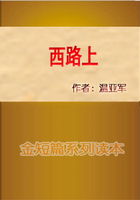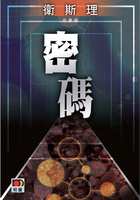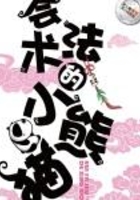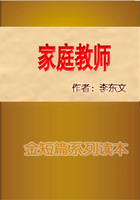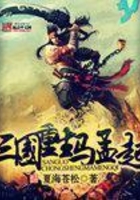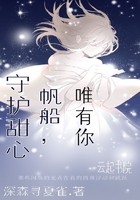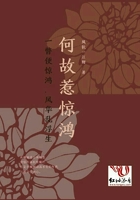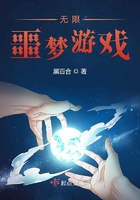THE CASTING OFF OF MOREL — THE TAKING ON OF WILLIAM
DURING the next week Morel's temper was almost unbearable. Like all miners, he was a great lover of medicines, which, strangely enough, he would often pay for himself.
"You mun get me a drop o' laxy vitral," he said. "It's a winder as we canna ha'e a sup i' th' 'ouse."
So Mrs. Morel bought him elixir of vitriol, his favourite first medicine. And he made himself a jug of wormwood tea. He had hanging in the attic great bunches of dried herbs: wormwood, rue, horehound, elder flowers, parsley-purt, marshmallow, hyssop, dandelion, and centaury. Usually there was a jug of one or other decoction standing on the hob, from which he drank largely.
"Grand!" he said, smacking his lips after wormwood. "Grand!" And he exhorted the children to try.
"It's better than any of your tea or your cocoa stews," he vowed. But they were not to be tempted.
This time, however, neither pills nor vitriol nor all his herbs would shift the "nasty peens in his head". He was sickening for an attack of an inflammation of the brain. He had never been well since his sleeping on the ground when he went with Jerry to Nottingham. Since then he had drunk and stormed. Now he fell seriously ill, and Mrs. Morel had him to nurse. He was one of the worst patients imaginable. But, in spite of all, and putting aside the fact that he was breadwinner, she never quite wanted him to die. Still there was one part of her wanted him for herself.
The neighbours were very good to her: occasionally some had the children in to meals, occasionally some would do the downstairs work for her, one would mind the baby for a day. But it was a great drag, nevertheless. It was not every day the neighbours helped. Then she had nursing of baby and husband, cleaning and cooking, everything to do. She was quite worn out, but she did what was wanted of her.
And the money was just sufficient. She had seventeen shillings a week from clubs, and every Friday Barker and the other butty put by a portion of the stall's profits for Morel's wife. And the neighbours made broths, and gave eggs, and such invalids' trifles. If they had not helped her so generously in those times, Mrs. Morel would never have pulled through, without incurring debts that would have dragged her down.
The weeks passed. Morel, almost against hope, grew better. He had a fine constitution, so that, once on the mend, he went straight forward to recovery. Soon he was pottering about downstairs. During his illness his wife had spoilt him a little. Now he wanted her to continue. He often put his band to his head, pulled down the comers of his mouth, and shammed pains he did not feel. But there was no deceiving her. At first she merely smiled to herself. Then she scolded him sharply.
"Goodness, man, don't be so lachrymose."
That wounded him slightly, but still he continued to feign sickness.
"I wouldn't be such a mardy baby," said the wife shortly.
Then he was indignant, and cursed under his breath, like a boy. He was forced to resume a normal tone, and to cease to whine.
Nevertheless, there was a state of peace in the house for some time. Mrs. Morel was more tolerant of him, and he, depending on her almost like a child, was rather happy. Neither knew that she was more tolerant because she loved him less. Up till this time, in spite of all, he had been her husband and her man. She had felt that, more or less, what he did to himself he did to her. Her living depended on him. There were many, many stages in the ebbing of her love for him, but it was always ebbing.
Now, with the birth of this third baby, her self no longer set towards him, helplessly, but was like a tide that scarcely rose, standing off from him. After this she scarcely desired him. And, standing more aloof from him, not feeling him so much part of herself, but merely part of her circumstances, she did not mind so much what he did, could leave him alone.
There was the halt, the wistfulness about the ensuing year, which is like autumn in a man's life. His wife was casting him off, half regretfully, but relentlessly; casting him off and turning now for love and life to the children. Henceforward he was more or less a husk. And he himself acquiesced, as so many men do, yielding their place to their children.
During his recuperation, when it was really over between them, both made an effort to come back somewhat to the old relationship of the first months of their marriage. He sat at home and, when the children were in bed, and she was sewing — she did all her sewing by hand, made all shirts and children's clothing — he would read to her from the newspaper, slowly pronouncing and delivering the words like a man pitching quoits. Often she hurried him on, giving him a phrase in anticipation. And then he took her words humbly.
The silences between them were peculiar. There would be the swift, slight "cluck" of her needle, the sharp "pop" of his lips as he let out the smoke, the warmth, the sizzle on the bars as he spat in the fire. Then her thoughts turned to William. Already he was getting a big boy. Already he was top of the class, and the master said he was the smartest lad in the school. She saw him a man, young, full of vigour, making the world glow again for her.
And Morel sitting there, quite alone, and having nothing to think about, would be feeling vaguely uncomfortable. His soul would reach out in its blind way to her and find her gone. He felt a sort of emptiness, almost like a vacuum in his soul. He was unsettled and restless. Soon he could not live in that atmosphere, and he affected his wife. Both felt an oppression on their breathing when they were left together for some time. Then he went to bed and she settled down to enjoy herself alone, working, thinking, living.
Meanwhile another infant was coming, fruit of this little peace and tenderness between the separating parents. Paul was seventeen months old when the new baby was born. He was then a plump, pale child, quiet, with heavy blue eyes, and still the peculiar slight knitting of the brows. The last child was also a boy, fair and bonny. Mrs. Morel was sorry when she knew she was with child, both for economic reasons and because she did not love her husband; but not for the sake of the infant.
They called the baby Arthur. He was very pretty, with a mop of gold curls, and he loved his father from the first. Mrs. Morel was glad this child loved the father. Hearing the miner's footsteps, the baby would put up his arms and crow. And if Morel were in a good temper, he called back immediately, in his hearty, mellow voice:
"What then, my beauty? I sh'll come to thee in a minute."
And as soon as he had taken off his pit-coat, Mrs. Morel would put an apron round the child, and give him to his father.
"What a sight the lad looks!" she would exclaim sometimes, taking back the baby, that was smutted on the face from his father's kisses and play. Then Morel laughed joyfully.
"He's a little collier, bless his bit o' mutton!" he exclaimed.
And these were the happy moments of her life now, when the children included the father in her heart.
Meanwhile William grew bigger and stronger and more active, while Paul, always rather delicate and quiet, got slimmer, and trotted after his mother like her shadow. He was usually active and interested, but sometimes he would have fits of depression. Then the mother would find the boy of three or four crying on the sofa.
"What's the matter?" she asked, and got no answer.
"What's the matter?" she insisted, getting cross.
"I don't know," sobbed the child.
So she tried to reason him out of it, or to amuse him, but without effect. It made her feel beside herself. Then the father, always impatient, would jump from his chair and shout:
"If he doesn't stop, I'll smack him till he does."
"You'll do nothing of the sort," said the mother coldly. And then she carried the child into the yard, plumped him into his little chair, and said: "Now cry there, Misery!"
And then a butterfly on the rhubarb-leaves perhaps caught his eye, or at last he cried himself to sleep. These fits were not often, but they caused a shadow in Mrs. Morel's heart, and her treatment of Paul was different from that of the other children.
Suddenly one morning as she was looking down the alley of the Bottoms for the barm-man, she heard a voice calling her. It was the thin little Mrs. Anthony in brown velvet.
"Here, Mrs. Morel, I want to tell you about your Willie."
"Oh, do you?" replied Mrs. Morel. "Why, what's the matter?"
"A lad as gets 'old of another an' rips his clothes off'n 'is back," Mrs. Anthony said, "wants showing something."
"Your Alfred's as old as my William," said Mrs. Morel.
"'Appen 'e is, but that doesn't give him a right to get hold of the boy's collar, an' fair rip it clean off his back."
"Well," said Mrs. Morel, "I don't thrash my children, and even if I did, I should want to hear their side of the tale."
"They'd happen be a bit better if they did get a good hiding," retorted Mrs. Anthony. "When it comes ter rippin' a lad's clean collar off'n 'is back a-purpose — "
"I'm sure he didn't do it on purpose," said Mrs. Morel.
"Make me a liar!" shouted Mrs. Anthony.
Mrs. Morel moved away and closed her gate. Her hand trembled as she held her mug of barm.
"But I s'll let your mester know," Mrs. Anthony cried after her.
At dinner-time, when William had finished his meal and wanted to be off again — he was then eleven years old — his mother said to him:
"What did you tear Alfred Anthony's collar for?"
"When did I tear his collar?"
"I don't know when, but his mother says you did."
"Why — it was yesterday — an' it was torn a'ready."
"But you tore it more."
"Well, I'd got a cobbler as 'ad licked seventeen — an' Alfy Ant'ny 'e says:
'Adam an' Eve an' pinch-me, Went down to a river to bade. Adam an' Eve got drownded, Who do yer think got saved?'
An' so I says: 'Oh, Pinch-YOU,' an' so I pinched 'im, an' 'e was mad, an' so he snatched my cobbler an' run off with it. An' so I run after 'im, an' when I was gettin' hold of 'im, 'e dodged, an' it ripped 'is collar. But I got my cobbler — "
He pulled from his pocket a black old horse-chestnut hanging on a string. This old cobbler had "cobbled" — hit and smashed — seventeen other cobblers on similar strings. So the boy was proud of his veteran.
"Well," said Mrs. Morel, "you know you've got no right to rip his collar."
"Well, our mother!" he answered. "I never meant tr'a done it — an' it was on'y an old indirrubber collar as was torn a'ready."
"Next time," said his mother, "YOU be more careful. I shouldn't like it if you came home with your collar torn off."
"I don't care, our mother; I never did it a-purpose."
The boy was rather miserable at being reprimanded.
"No — well, you be more careful."
William fled away, glad to be exonerated. And Mrs. Morel, who hated any bother with the neighbours, thought she would explain to Mrs. Anthony, and the business would be over.
But that evening Morel came in from the pit looking very sour. He stood in the kitchen and glared round, but did not speak for some minutes. Then:
"Wheer's that Willy?" he asked.
"What do you want HIM for?" asked Mrs. Morel, who had guessed.
"I'll let 'im know when I get him," said Morel, banging his pit-bottle on to the dresser.
"I suppose Mrs. Anthony's got hold of you and been yarning to you about Alfy's collar," said Mrs. Morel, rather sneering.
"Niver mind who's got hold of me," said Morel. "When I get hold of 'IM I'll make his bones rattle."
"It's a poor tale," said Mrs. Morel, "that you're so ready to side with any snipey vixen who likes to come telling tales against your own children."
"I'll learn 'im!" said Morel. "It none matters to me whose lad 'e is; 'e's none goin' rippin' an' tearin' about just as he's a mind."
"'Ripping and tearing about!'" repeated Mrs. Morel. "He was running after that Alfy, who'd taken his cobbler, and he accidentally got hold of his collar, because the other dodged — as an Anthony would."
"I know!" shouted Morel threateningly.
"You would, before you're told," replied his wife bitingly.
"Niver you mind," stormed Morel. "I know my business."
"That's more than doubtful," said Mrs. Morel, "supposing some loud-mouthed creature had been getting you to thrash your own children."
"I know," repeated Morel.
And he said no more, but sat and nursed his bad temper. Suddenly William ran in, saying:
"Can I have my tea, mother?"
"Tha can ha'e more than that!" shouted Morel.
"Hold your noise, man," said Mrs. Morel; "and don't look so ridiculous."
"He'll look ridiculous before I've done wi' him!" shouted Morel, rising from his chair and glaring at his son.
William, who was a tall lad for his years, but very sensitive, had gone pale, and was looking in a sort of horror at his father.
"Go out!" Mrs. Morel commanded her son.
William had not the wit to move. Suddenly Morel clenched his fist, and crouched.
"I'll GI'E him 'go out'!" he shouted like an insane thing.
"What!" cried Mrs. Morel, panting with rage. "You shall not touch him for HER telling, you shall not!"
"Shonna I?" shouted Morel. "Shonna I?"
And, glaring at the boy, he ran forward. Mrs. Morel sprang in between them, with her fist lifted.
"Don't you DARE!" she cried.
"What!" he shouted, baffled for the moment. "What!"
She spun round to her son.
"GO out of the house!" she commanded him in fury.
The boy, as if hypnotised by her, turned suddenly and was gone. Morel rushed to the door, but was too late. He returned, pale under his pit-dirt with fury. But now his wife was fully roused.
"Only dare!" she said in a loud, ringing voice. "Only dare, milord, to lay a finger on that child! You'll regret it for ever."
He was afraid of her. In a towering rage, he sat down.
When the children were old enough to be left, Mrs. Morel joined the Women's Guild. It was a little club of women attached to the Co-operative Wholesale Society, which met on Monday night in the long room over the grocery shop of the Bestwood "Co-op". The women were supposed to discuss the benefits to be derived from co-operation, and other social questions. Sometimes Mrs. Morel read a paper. It seemed queer to the children to see their mother, who was always busy about the house, sitting writing in her rapid fashion, thinking, referring to books, and writing again. They felt for her on such occasions the deepest respect.
But they loved the Guild. It was the only thing to which they did not grudge their mother — and that partly because she enjoyed it, partly because of the treats they derived from it. The Guild was called by some hostile husbands, who found their wives getting too independent, the "clat-fart" shop — that is, the gossip-shop. It is true, from off the basis of the Guild, the women could look at their homes, at the conditions of their own lives, and find fault. So the colliers found their women had a new standard of their own, rather disconcerting. And also, Mrs. Morel always had a lot of news on Monday nights, so that the children liked William to be in when their mother came home, because she told him things.
Then, when the lad was thirteen, she got him a job in the "Co-op." office. He was a very clever boy, frank, with rather rough features and real viking blue eyes.
"What dost want ter ma'e a stool-harsed Jack on 'im for?" said Morel. "All he'll do is to wear his britches behind out an' earn nowt. What's 'e startin' wi'?"
"It doesn't matter what he's starting with," said Mrs. Morel.
"It wouldna! Put 'im i' th' pit we me, an' 'ell earn a easy ten shillin' a wik from th' start. But six shillin' wearin' his truck-end out on a stool's better than ten shillin' i' th' pit wi'me, I know."
"He is NOT going in the pit," said Mrs. Morel, "and there's an end of it."
"It wor good enough for me, but it's non good enough for 'im."
"If your mother put you in the pit at twelve, it's no reason why I should do the same with my lad."
"Twelve! It wor a sight afore that!"
"Whenever it was," said Mrs. Morel.
She was very proud of her son. He went to the night school, and learned shorthand, so that by the time he was sixteen he was the best shorthand clerk and book-keeper on the place, except one. Then he taught in the night schools. But he was so fiery that only his good-nature and his size protected him.
All the things that men do — the decent things — William did. He could run like the wind. When he was twelve he won a first prize in a race; an inkstand of glass, shaped like an anvil. It stood proudly on the dresser, and gave Mrs. Morel a keen pleasure. The boy only ran for her. He flew home with his anvil, breathless, with a "Look, mother!" That was the first real tribute to herself. She took it like a queen.
"How pretty!" she exclaimed.
Then he began to get ambitious. He gave all his money to his mother. When he earned fourteen shillings a week, she gave him back two for himself, and, as he never drank, he felt himself rich. He went about with the bourgeois of Bestwood. The townlet contained nothing higher than the clergyman. Then came the bank manager, then the doctors, then the tradespeople, and after that the hosts of colliers. Willam began to consort with the sons of the chemist, the schoolmaster, and the tradesmen. He played billiards in the Mechanics' Hall. Also he danced — this in spite of his mother. All the life that Bestwood offered he enjoyed, from the sixpenny-hops down Church Street, to sports and billiards.
Paul was treated to dazzling descriptions of all kinds of flower-like ladies, most of whom lived like cut blooms in William's heart for a brief fortnight.
Occasionally some flame would come in pursuit of her errant swain. Mrs. Morel would find a strange girl at the door, and immediately she sniffed the air.
"Is Mr. Morel in?" the damsel would ask appealingly.
"My husband is at home," Mrs. Morel replied.
"I — I mean YOUNG Mr. Morel," repeated the maiden painfully.
"Which one? There are several." Whereupon much blushing and stammering from the fair one.
"I — I met Mr. Morel — at Ripley," she explained.
"Oh — at a dance!"
"Yes."
"I don't approve of the girls my son meets at dances. And he is NOT at home."
Then he came home angry with his mother for having turned the girl away so rudely. He was a careless, yet eager-looking fellow, who walked with long strides, sometimes frowning, often with his cap pushed jollily to the back of his head. Now he came in frowning. He threw his cap on to the sofa, and took his strong jaw in his hand, and glared down at his mother. She was small, with her hair taken straight back from her forehead. She had a quiet air of authority, and yet of rare warmth. Knowing her son was angry, she trembled inwardly.
"Did a lady call for me yesterday, mother?" he asked.
"I don't know about a lady. There was a girl came."
"And why didn't you tell me?"
"Because I forgot, simply."
He fumed a little.
"A good-looking girl — seemed a lady?"
"I didn't look at her."
"Big brown eyes?"
"I did NOT look. And tell your girls, my son, that when they're running after you, they're not to come and ask your mother for you. Tell them that — brazen baggages you meet at dancing-classes."
"I'm sure she was a nice girl."
"And I'm sure she wasn't."
There ended the altercation. Over the dancing there was a great strife between the mother and the son. The grievance reached its height when William said he was going to Hucknall Torkard — considered a low town — to a fancy-dress ball. He was to be a Highlander. There was a dress he could hire, which one of his friends had had, and which fitted him perfectly. The Highland suit came home. Mrs. Morel received it coldly and would not unpack it.
"My suit come?" cried William.
"There's a parcel in the front room."
He rushed in and cut the string.
"How do you fancy your son in this!" he said, enraptured, showing her the suit.
"You know I don't want to fancy you in it."
On the evening of the dance, when he had come home to dress, Mrs. Morel put on her coat and bonnet.
"Aren't you going to stop and see me, mother?" he asked.
"No; I don't want to see you," she replied.
She was rather pale, and her face was closed and hard. She was afraid of her son's going the same way as his father. He hesitated a moment, and his heart stood still with anxiety. Then he caught sight of the Highland bonnet with its ribbons. He picked it up gleefully, forgetting her. She went out.
When he was nineteen he suddenly left the Co-op. office and got a situation in Nottingham. In his new place he had thirty shillings a week instead of eighteen. This was indeed a rise. His mother and his father were brimmed up with pride. Everybody praised William. It seemed he was going to get on rapidly. Mrs. Morel hoped, with his aid, to help her younger sons. Annie was now studying to be a teacher. Paul, also very clever, was getting on well, having lessons in French and German from his godfather, the clergyman who was still a friend to Mrs. Morel. Arthur, a spoilt and very good-looking boy, was at the Board school, but there was talk of his trying to get a scholarship for the High School in Nottingham.
William remained a year at his new post in Nottingham. He was studying hard, and growing serious. Something seemed to be fretting him. Still he went out to the dances and the river parties. He did not drink. The children were all rabid teetotallers. He came home very late at night, and sat yet longer studying. His mother implored him to take more care, to do one thing or another.
"Dance, if you want to dance, my son; but don't think you can work in the office, and then amuse yourself, and THEN study on top of all. You can't; the human frame won't stand it. Do one thing or the other — amuse yourself or learn Latin; but don't try to do both."
Then he got a place in London, at a hundred and twenty a year. This seemed a fabulous sum. His mother doubted almost whether to rejoice or to grieve.
"They want me in Lime Street on Monday week, mother," he cried, his eyes blazing as he read the letter. Mrs. Morel felt everything go silent inside her. He read the letter: "'And will you reply by Thursday whether you accept. Yours faithfully — ' They want me, mother, at a hundred and twenty a year, and don't even ask to see me. Didn't I tell you I could do it! Think of me in London! And I can give you twenty pounds a year, mater. We s'll all be rolling in money."
"We shall, my son," she answered sadly.
It never occurred to him that she might be more hurt at his going away than glad of his success. Indeed, as the days drew near for his departure, her heart began to close and grow dreary with despair. She loved him so much! More than that, she hoped in him so much. Almost she lived by him. She liked to do things for him: she liked to put a cup for his tea and to iron his collars, of which he was so proud. It was a joy to her to have him proud of his collars. There was no laundry. So she used to rub away at them with her little convex iron, to polish them, till they shone from the sheer pressure of her arm. Now she would not do it for him. Now he was going away. She felt almost as if he were going as well out of her heart. He did not seem to leave her inhabited with himself. That was the grief and the pain to her. He took nearly all himself away.
A few days before his departure — he was just twenty — he burned his love-letters. They had hung on a file at the top of the kitchen cupboard. From some of them he had read extracts to his mother. Some of them she had taken the trouble to read herself. But most were too trivial.
Now, on the Saturday morning he said:
"Come on, Postle, let's go through my letters, and you can have the birds and flowers."
Mrs. Morel had done her Saturday's work on the Friday, because he was having a last day's holiday. She was making him a rice cake, which he loved, to take with him. He was scarcely conscious that she was so miserable.
He took the first letter off the file. It was mauve-tinted, and had purple and green thistles. William sniffed the page.
"Nice scent! Smell."
And he thrust the sheet under Paul's nose.
"Um!" said Paul, breathing in. "What d'you call it? Smell, mother."
His mother ducked her small, fine nose down to the paper.
"I don't want to smell their rubbish," she said, sniffing.
"This girl's father," said William, "is as rich as Croesus. He owns property without end. She calls me Lafayette, because I know French. 'You will see, I've forgiven you' — I like HER forgiving me. 'I told mother about you this morning, and she will have much pleasure if you come to tea on Sunday, but she will have to get father's consent also. I sincerely hope he will agree. I will let you know how it transpires. If, however, you — '"
"'Let you know how it' what?" interrupted Mrs. Morel.
"'Transpires' — oh yes!"
"'Transpires!'" repeated Mrs. Morel mockingly. "I thought she was so well educated!"
William felt slightly uncomfortable, and abandoned this maiden, giving Paul the corner with the thistles. He continued to read extracts from his letters, some of which amused his mother, some of which saddened her and made her anxious for him.
"My lad," she said, "they're very wise. They know they've only got to flatter your vanity, and you press up to them like a dog that has its head scratched."
"Well, they can't go on scratching for ever," he replied. "And when they've done, I trot away."
"But one day you'll find a string round your neck that you can't pull off," she answered.
"Not me! I'm equal to any of 'em, mater, they needn't flatter themselves."
"You flatter YOURSELF," she said quietly.
Soon there was a heap of twisted black pages, all that remained of the file of scented letters, except that Paul had thirty or forty pretty tickets from the corners of the notepaper — swallows and forget-me-nots and ivy sprays. And William went to London, to start a new life.

